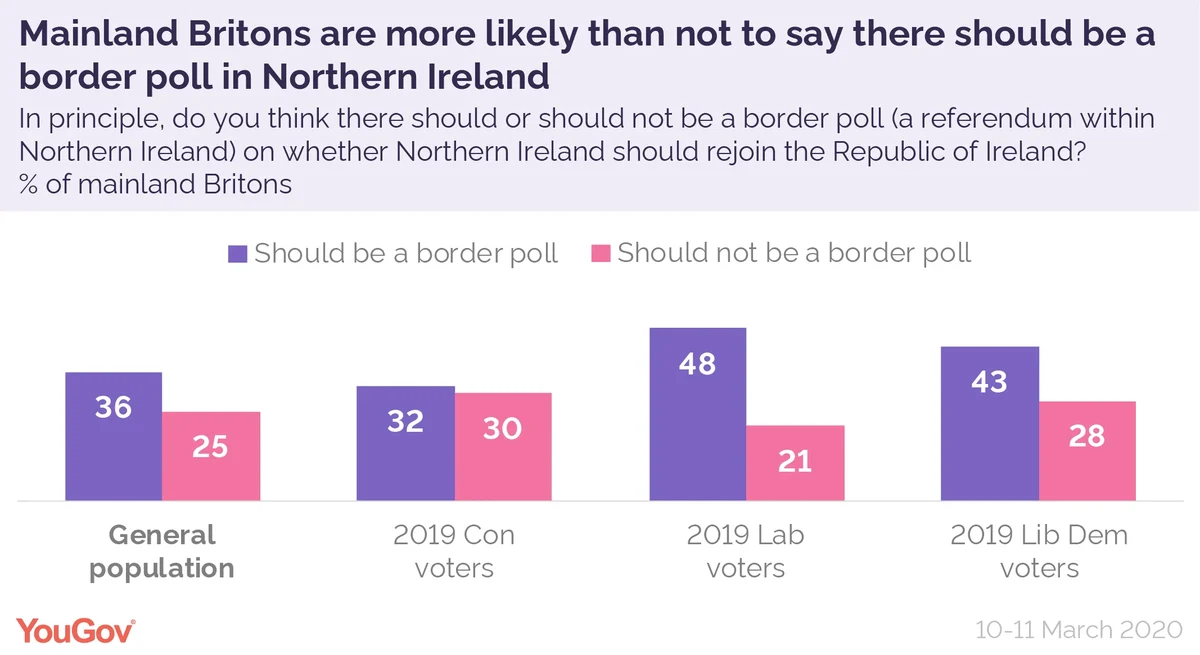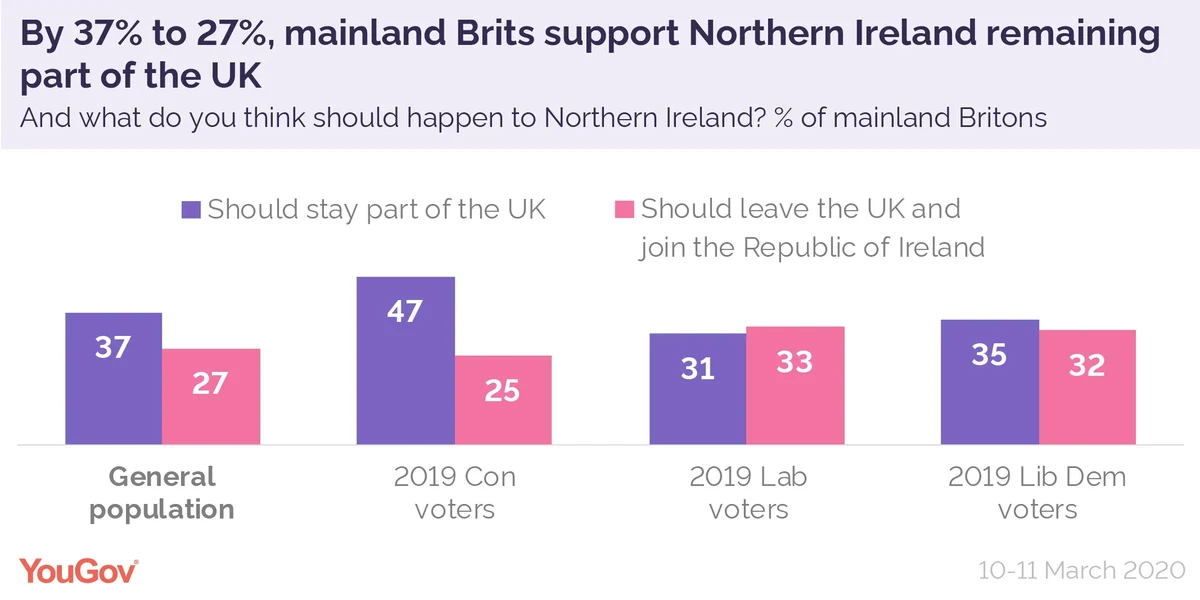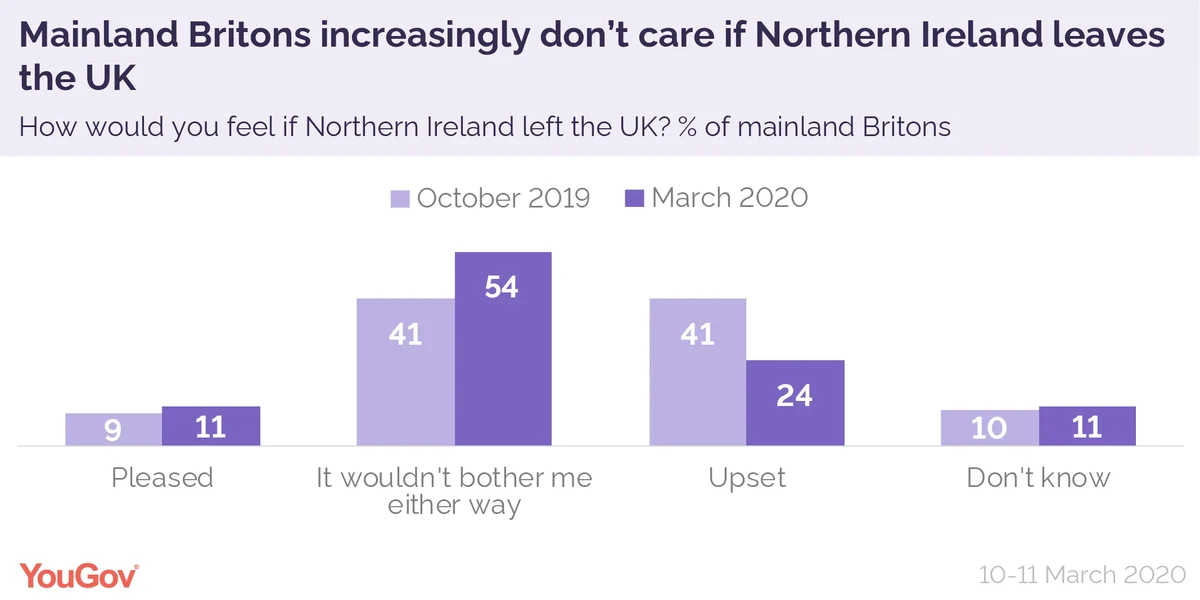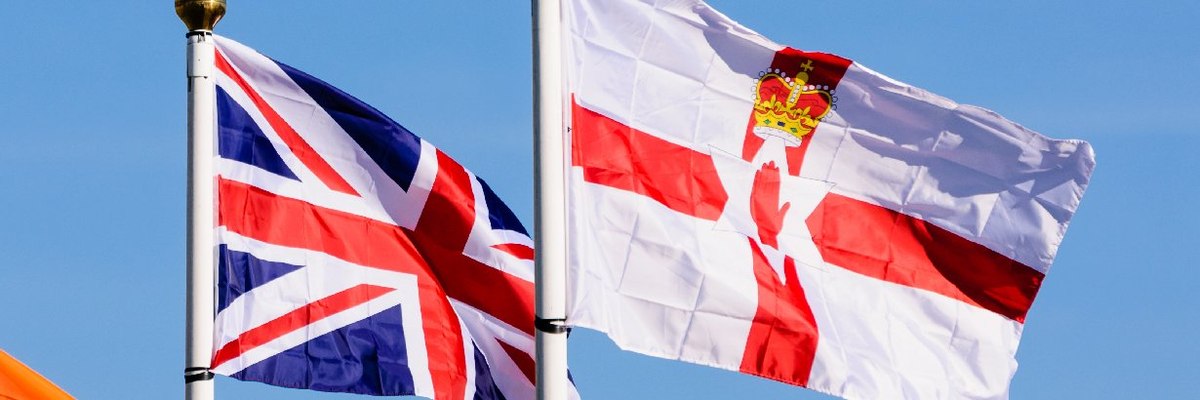Britons see themselves as having less in common with Northern Ireland, and support the region holding a reunification referendum
Since the Republic of Ireland went to the polls in early February, there has been increased speculation on what the results could mean for Northern Ireland. In addition to the region’s importance in the Brexit negotiations, Sinn Féin’s strong performance at the Irish election has given a boost to their demands for a border poll (a referendum in Northern Ireland on Irish reunification) within the next five years. As per the Good Friday Agreement, the decision to call a border poll rests with Westminster, but the measure has largely been thought to be an unpopular one in Britain.
However, the results of a new YouGov survey have shown that, in principle, more Brits are supportive of a border poll taking place in Northern Ireland than against it by 36% to 25%. A further 39% responded that they didn’t know, showing a strong element of disinterest amongst the British public.

While Labour and Liberal Democrats voters were more supportive of a border poll than the general public with 48% and 43% supporting respectively, Conservative voters were overall opposed to the idea, with 32% against it and 30% in favour.
The EU referendum divide showed a larger difference, with Remain voters supporting a border poll by 18 percentage points (41% to 23%), compared to Leave voters who are still supportive of a poll, but only by 5 percentage points (34% to 29%).
Despite more of the British public supporting a border poll than opposing one, more respondents prefer the outcome in which Northern Ireland stays put, with 37% saying it should remain part of the UK. The region sticking in the union has the most support across two of the three main parties, as well as both sides of the referendum. Labour voters are the exception, supporting reunification by 33% to 31%. Meanwhile Conservative voters are least likely to support the region leaving, with staying in the UK holding a 22 percentage point lead over leaving (47% to 25%).

Yet Unionists should not be too enthused, as over one in four (27%) Britons say Northern Ireland should seek reunification with Ireland, and an additional 36% say they don’t know. Although many of those who say they don’t know could be attributed to a lack of knowledge regarding the situation, it does suggest a level of wilful ambivalence amongst the British public towards the issue of reunification.
It appears there is significant disinterest amongst the British public regarding the future of Northern Ireland, as more than half of all Brits (54%) say they would not be bothered either way by the region leaving the UK. Since YouGov last asked in October of last year how Brits would feel, the total that said they would be upset by the region’s departure dropped 17 percentage points from 41% to 24%.

In spite of its official name, the ‘Conservative and Unionist Party’ appears especially ambivalent to the end of the Union, with 53% of Conservative voters indicating they wouldn’t care if Northern Ireland left the UK.
Brits don’t seem to think Northern Ireland will be leaving as promptly as Sinn Féin might hope though, with only 14% believing reunification will take place in the next five years. However, over one in four Brits (29%) think it is likely the Union will not survive the decade, and nearly half of the public (46%) think Northern Ireland will have departed within the next fifty years.
Part of the reason Brits are so unfazed by a potential departure of Northern Ireland from the union might be that those from England (the largest component part of the United Kingdom) don’t see themselves as having as much in common with the region as they do with the other countries in the union.
While English respondents feel that they overall have more in common with those from England (+68), Wales (+5), and Scotland (+2), the same is not true of those the other side of the Irish Sea. Englanders feel that they have overall not much to nothing in common with those from Northern Ireland (-12) and Ireland (-10).
Indeed, when the public were asked which country Northern Ireland had more in common with, only 28% said the region shared more in common with Britain, while 40% said it was more similar to Ireland. One in five Brits (19%) think Northern Ireland has much more in common with Ireland, revealing how similar Brits perceive the two to be.
Not only do many Brits feel distant from the island of Ireland, the subject of Irish history is something few seem to have engaged in. Just 6% of the public say they have studied Irish Home Rule and the Troubles whilst at school, with a far larger amount covering topics such as the Tudors (56%) and World War Two (51%). However, with the new composition of the Irish Dáil and uncertainty around Brexit, Brits may have to get used to hearing more about the subject in the near future.









